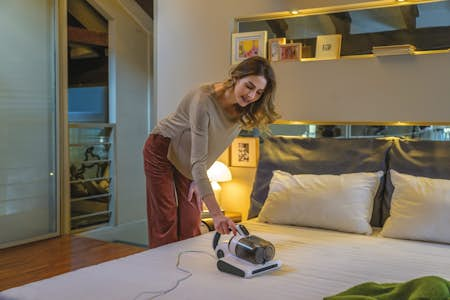We often hear that we should take up new activities to “keep our brains active” as we get older. But what does this mean? Which activities are the most useful? Below, we’ve rounded up research on hobbies proven to keep your brain sharp.
Exercise to keep your brain sharp
We know exercise reduces the risk of major illnesses, including strokes and heart disease. It can also have positive effects on mood. But, did you know that exercise also affects mental performance?
Studies show that voluntary exercise can increase levels of BDNF. BDNF (brain-derived neurotrophic factor) is an important growth factor in the brain. It’s linked to neuroplasticity, our brain’s capacity to make new connections and changes. This is one reason many researchers have concluded that exercise improves learning and mental performance.
How to start exercising
The NHS website advises adults to be active every day. But, if you don’t already undertake regular exercise, you might think it’s not for you. This isn’t necessarily true! In reality, you probably haven't found the type of activity you enjoy yet!
Exercise doesn’t have to be strenuous, and recommendations about intensity and quantity vary according to age and physical ability. To get started, you could find a local dance class, start power walking, or try free online classes. Just remember to get advice from your GP if you’re not sure which exercises are suitable for you.
Even if you can only manage a small amount of exercise, don't be discouraged. A little bit of exercise is much better than no activity at all!
Brain training – does it work?
Brain training games were all the rage a few years ago, and remain popular today. From books to video games, brain training programmes usually focus on solving puzzles. But does this improve brain function?
In 2018, researchers compiled an analysis of how people can reduce their risk of dementia and cognitive loss. One of the areas they discussed was intellectual activity. Researchers argued it was difficult to determine whether brain-training puzzles "strengthen cognitive reserve or simply enable people to become better at working out a specific type of puzzle". In other words, doing puzzles makes you better at puzzles, but not necessarily other activities.
The report suggests it might be better to do a wide range of intellectual activities, such as reading, gardening, listening to music, and doing puzzles. For inspiration, why not have a look at our hobby ideas guide?
Take up cooking as a hobby
A healthy diet does wonders for the body. And, it seems, this extends to the brain too! Research has shown sticking to a Mediterranean diet is “associated with a trend for reduced risk for developing [mild cognitive impairment]”. The diet includes (along with a few other ingredients) a high intake of fish, vegetables, fruits, unsaturated fatty acids, and cereals, with a low intake of dairy products, meat, and saturated fatty acids.
On the one hand, this sounds like a great excuse to try out every Mediterranean restaurant in town! But, a change in diet is also an excellent opportunity to take up cooking as a hobby. We recently looked at how to start cooking as a hobby, whatever your current culinary abilities. Here are some top tips for getting started:
- Start simple, and work your way up to more elaborate meals, step by step
- Learn how to chop
- Make sure you have the essential equipment
- Concentrate on timing
- Understand cooking lingo
- Play with flavours
- Get used to using timers
- Find honest taste testers
- Control kitchen mess
- Practice your recipes
For more information, check out the full article!
Learn a new language (or brush up an old one)
Most of us studied at least a little French at school. So, why is it that we can’t remember anything other than “je m’appelle”? Learning a language as an adult is a much more engaging and useful experience. You can test your skills out on friends, on holiday, or by watching foreign films.
It also turns out that speaking multiple languages may delay the onset of Alzheimer’s disease. The results from studies vary, but some claim that speaking at least two languages can have a positive effect on the brain, even delaying the onset of the disease by up to five years!
Learning a language can be daunting. Luckily, there are many resources online to help you out. For more information, see our guide on hobbies you can do alone.
We spoke to Lindsay Williams from Lindsay Does Languages, who told Age Times: "We often rule out language learning as adults because we think we've 'missed the boat' and will never be fluent. There's actually a lot of debate out there among linguists about the best age to learn a second language - if there even is one - so it's certainly never too late to start! And besides, learning a language isn't just about becoming fluent. It's about learning more about the world, and opening doors to new holidays, cultures, and people.
"As adult language learners, we get to decide what we learn and how we learn it, and are no longer tethered to a textbook like back in school. So go ahead and enjoy language learning at any age! Whether it's a little on an app, or a lot with a full-on immersion experience abroad, there's nothing to lose and everything to gain."
Start a craft
Some people are naturally drawn to crafts. But, you don’t have to be at a professional level to enjoy making something. Crafting and DIY are unique hobbies, in that you can see the fruits of your labour and enjoy displaying what you’ve made.
It seems crafts are also good for our brains. A 2018 study monitored adults who spent several hours a week learning a new art over a few months. They showed improved cognitive performance.
If you're not sure where to start, look at our hobby pages. We've rounded up advice on getting started with new hobbies, including a comprehensive guide to machine sewing.








